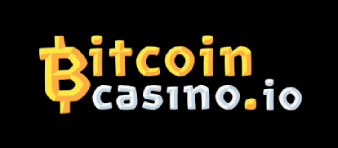
German online casinos for Real Money
"Best Crypto Casino"
Bitcoin Casino
Winning, Smokin' Hot!
SmokAce Casino
"The Queen of Egypt"
Cleopatra Casino
Germany Casino Guide
Getting Started
Germany’s online casino landscape has undergone significant changes recently, making the gambling laws more straightforward than ever. With the 2021 overhaul of gambling legislation, understanding what’s permissible in the realm of online betting is now clearer. For those looking to dive into the world of German online casinos, we provide a detailed guide. Covering everything from the latest laws and regulations to selecting the ideal online casino, our aim is to simplify your journey into German online gambling. Let’s begin with an overview of the current gambling laws and regulations in Germany.
Germany’s Gambling Laws and Regulations
As of 2023, Germany has undergone significant updates in its gambling laws and regulations. A major change is the centralization of the gambling licensing process. Previously, the responsibility for granting online gambling licenses in Germany was distributed among the 16 Federal States. However, since January 1, 2023, this responsibility has been transferred to a newly formed “Joint Gambling Supervisory Authority” (GGL) located in Halle. This move aims to streamline the licensing process, making it more efficient for operators to deal with one authority instead of multiple state regulators.
Under the German Interstate Treaty on Gambling (ISTG 2021), private operators have been allowed to apply for licenses to offer sports betting, virtual slot machines, and online poker since 2021. However, the licensing for virtual simulations of certain casino games and live broadcasts of casino games conducted terrestrially is subject to separate laws of the individual Federal States. Some states, like Schleswig-Holstein and North Rhine-Westphalia, have indicated plans to issue licenses to private operators for these online casino games, with a limited number of licenses available.
Furthermore, there has been an increase in recovery claims by players who have lost stakes to private gambling operators, particularly those operating without a proper license. While the Federal Court of Justice in Germany ruled that payment service providers are not liable for the repayment of online gambling stakes, the legal landscape for player recovery claims against gambling operators is still evolving, with different rulings for slot games and sports betting.
Additionally, the passing of Malta’s “Bill 55” has implications for Germany. This bill allows Maltese Courts to refuse the recognition and enforcement of foreign judgements awarding damages to plaintiffs following recovery claims, which could affect German court decisions against Maltese operators. The GGL views this bill as potentially in breach of EU law, but it awaits further developments and legal review at the EU level.
Overall, these changes reflect Germany’s efforts to regulate online gambling more effectively and provide a more unified approach across its states. However, the legal landscape is still evolving, particularly concerning player recovery claims and the impact of international regulations like Malta’s Bill 55.
Who Regulates and Licenses German Casino Sites?
As of 2023, the regulation and licensing of casino sites in Germany are handled by the newly formed “Joint Gambling Supervisory Authority” (Gemeinsame Glücksspielbehörde der Länder – GGL). This central authority, established in Halle, became responsible for the entire gambling licensing process in Germany, starting from January 1, 2023. Prior to this, the responsibility was divided among the 16 Federal States of Germany.
The GGL oversees the granting of licenses for online gambling activities, including sports betting, virtual slot machines, and online poker, under the German Interstate Treaty on Gambling (ISTG 2021). For certain specific online casino games, such as virtual simulations of casino games like Blackjack and Roulette, as well as live broadcasts of terrestrial casino games, the licensing process is subject to the separate laws of the individual Federal States. This means that each state has the autonomy to decide whether to grant licenses for these specific games to private operators or restrict them to state operators. The states of Schleswig-Holstein and North Rhine-Westphalia, for example, have indicated plans to issue a limited number of licenses to private operators for these types of online casino games.
The GGL’s role includes not only the issuance of licenses but also the enforcement of gambling regulations, including the initiation of criminal investigations related to gambling activities. This centralization aims to ensure uniform application and enforcement of gambling laws across Germany, streamlining the regulatory process for operators and authorities alike.
Germany’s Most Popular Gambling Games
In Germany, the most popular gambling games in the iGaming market include a variety of casino games and sports betting. Slot machines are particularly popular, with titles featuring the Joker motif like “Mystery Joker,” “All Ways Joker,” and “Fire Joker” being favorites. The video slot “Book of Dead” is also highly popular among German players. In addition to slots, classic table games like Blackjack and Roulette enjoy popularity. In terms of sports betting, football is the most bet-on sport, closely followed by handball. Esports, especially CS:GO, is also gaining traction among German bettors. Other popular betting sports include tennis, boxing, golf, racing, MMA, and athletics, with table tennis, snooker, badminton, and darts also featured on betting sites. Horseracing is significant but has uneven coverage due to licensing issues.
Who Can Play?
In Germany, online casinos are accessible to residents, not just citizens, and many are also licensed to operate in other EU countries. However, due to the ID verification system primarily targeting the German market, EU citizens might find it more suitable to play at casinos in their respective countries. German casinos typically do not accept players using VPNs. Germans also have access to offshore casinos, which, while licensed, are not regulated by Germany. The country attempts to block these sites, but there are no penalties for playing at them. Players aged 18 and above are legally allowed to gamble.
Online Casino Payment Options
Online casinos in Germany offer a wide range of payment methods exclusively available to German players. These methods are organized into various categories, such as Credit/Debit Cards, e-Wallets, Bank Transfers, and Cryptocurrencies. The following is a detailed list of the most common payment options for German players:
Credit/Debit Cards:
- Visa: A widely accepted credit and debit card option that allows players to make quick and secure payments at online casinos.
- MasterCard: Another popular credit and debit card option, MasterCard offers fast and secure transactions for German players.
- Maestro: A widely-used debit card by German players, Maestro is a subsidiary of MasterCard and allows for instant transactions.
e-Wallets:
- PayPal: A well-known global e-wallet service, PayPal is a popular choice for German players due to its security and ease of use.
- Neteller: A leading e-wallet service, Neteller is widely accepted by online casinos and offers instant transactions for players in Germany.
- Skrill: Formerly known as Moneybookers, Skrill is another popular e-wallet option for German players, offering secure and fast transactions.
- Giropay: A German-based online banking e-wallet, Giropay connects with a user’s bank account to facilitate secure and instantaneous payments to online casinos.
- Sofort: Also known as Klarna, Sofort is a popular online banking method in Germany, providing fast and secure payments without the need to create an account with the service.
Bank Transfers:
- Bank Wire: A traditional method, bank wire transfers are widely accepted by online casinos for German players, although the processing times are typically longer compared to other options.
- SEPA: The Single Euro Payments Area (SEPA) is a system that simplifies bank transfers across the Eurozone, making it a convenient option for players in Germany who wish to transfer funds directly from their bank accounts.
Cryptocurrencies:
- Bitcoin: As the most popular and widely accepted cryptocurrency, Bitcoin offers German players anonymity, fast transactions, and low fees at online casinos that accept cryptocurrency payments.
- Ethereum: Another popular cryptocurrency, Ethereum offers similar benefits as Bitcoin, with some online casinos in Germany also accepting this digital currency.
- Litecoin: A lighter alternative to Bitcoin, Litecoin is increasingly being accepted by online casinos in Germany, offering fast and secure transactions for players.
These payment methods are all available for German players, offering a range of options to suit different preferences and requirements. It is essential to note that individual online casinos may have specific restrictions or conditions, so players should always double-check the availability of their preferred payment method before signing up.
New Online Casinos in Germany 2025
F.A.Q's
1. Is online gambling legal in Germany?
Yes, online gambling is legal in Germany. The Interstate Treaty on Gambling 2021, which came into effect on July 1, 2021, regulates online gambling in the country. It legalizes online casino games, online poker, and online sports betting, with licenses being issued by the German authorities.
2. How can I deposit money at a German online casino?
There are various payment methods available for German players to deposit money at online casinos, including bank transfers, credit cards, e-wallets, and prepaid cards. To learn more about depositing at online casinos, check out our comprehensive guide on Depositing at Online Casinos.
3. How do I withdraw my winnings from a German online casino?
Withdrawing your winnings from a German online casino typically involves using the same payment method used for deposits. Common withdrawal methods include bank transfers, credit cards, and e-wallets. For more information, visit our guide on Withdrawing at Online Casinos.
4. Are online casino games fair in Germany?
Yes, as long as you choose a licensed and regulated online casino, the games will be fair. Licensed online casinos must use certified random number generators (RNGs) to ensure game fairness. For more information on game fairness, check out our Safety and Security guide.
5. What types of games can I play at German online casinos?
German online casinos offer a wide variety of games, including slots, table games, video poker, and live dealer games. To learn more about the different casino games and their requirements, visit our Casino Games & Requirements guide.
6. Are there any bonuses or promotions for German players?
Yes, German players can take advantage of various bonuses and promotions offered by online casinos. These may include welcome bonuses, deposit bonuses, and loyalty programs. For more information on bonuses and loyalty programs, visit our Bonuses and Loyalty Programs guide.
7. Can I play at online casinos using my mobile device?
Yes, most online casinos in Germany offer mobile compatibility, allowing you to play your favorite games using your smartphone or tablet. For more information on mobile gaming, check out our Mobile Gaming guide.
8. Is it safe to gamble online in Germany?
As long as you choose a licensed and regulated online casino, it is safe to gamble online in Germany. These casinos are required to meet strict security standards to protect your personal and financial information.
9. Can I use cryptocurrencies to gamble at German online casinos?
Some German online casinos do accept cryptocurrencies like Bitcoin, Ethereum, and Litecoin as payment methods. To learn more about using cryptocurrencies and blockchain technology in online gambling, visit our Cryptocurrency and Blockchain guide.
10. How do I choose the best online casino in Germany?
When choosing the best online casino in Germany, consider factors such as licensing and regulation, game selection, bonuses and promotions, payment methods, and customer support. It’s essential to choose a casino that meets your needs and preferences. For more guidance on selecting the best online casino, visit our Mastering Online Gambling guide.














